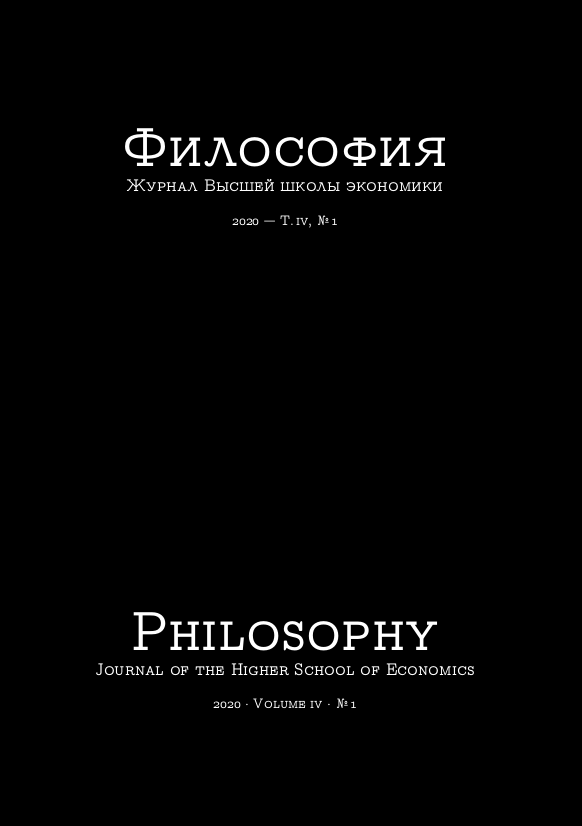Neuroethics
Abstract
This thematic issue of the journal was conceived as a discussion platform for dialogue between philosophers, natural scientists and medical practitioners about the nature of neuroethics — a discipline that is still not established, but attracts attention as interdisciplinary. It is no an accident that as a result of large-scale brain research programs announced at the beginning of the 21st century by the European Union and the countries of North America, several new scientific disciplines arose, such as, for example, neuroeconomics, neuropsychology, neuropolitology, neurotheology, neurophilosophy, in which there is no philosophical view of the problem under study less important than its natural-science study, and the development of a common scientific language becomes almost a condition for their successful development. The emergence of such disciplines at the intersection of various cognitive and social sciences is evidence of another “naturalistic” turn in humanitarian knowledge, on the one hand, and the recognition of the importance of ethical expertise of natural science research, on the other hand.
The “Studies” section of this issue opens with an article of R.G. Apresyan, in which the author formulates “challenges” for modern philosophy and neuroscience, which required, on the one hand, philosophers to recognize the need to revise ethical and philosophical concepts in the development of moral theory following the actual development of science; and, on the other hand, to overcome the unjustified skepticism of scientists regarding the effectiveness of their use of existing ethical concepts, which is the result, as a rule, of their everyday understanding of morality. Further in his article D.I. Dubrovskiy reveals the content of various most significant areas of neuroethics research — from Brain Reading to free will — which allows seeing in it the most important element of modern neuroscience. T.Khamdamov analyzes specific examples of Human Brain Projects, in which the functioning of complex multi-factor models of the brain and nervous system are provided by the large computing power of hardware and software systems during computer simulations of the neurophysiological, neurobiological and neuropsychological processes of a living organism. This section concludes with an article by Yu.Yu. Petrunin, which presents the results of his scientometric analysis of the database of publications of Russian scientists on neuroethics in the RSCI and foreign databases MND and WoS, which allows us to judge the specifics of the institutionalization of neuroethics in Russia.
The “Discussions” section presents materials from the round table “Actual Problems of Neuroethics”, which took place on October 30, 2019, with the joint participation of the National Research University “Higher School of Economics” and the Council on the methodology of artificial intelligence under the Presidium of the Russian Academy of Sciences. Next is a detailed discussion of our colleagues from Belarus about the prospects of Human enhancement in the framework of psycho-neuro-genetics as a result of the manipulation of genes and the introduction of NBIK technologies.
In the section “Book Reviews and Digests” there are three polemic texts: K.K. Martynov's review on the book by B.G. Yudin “The Man: out of the limits” (2018), G.A. Chasovskikh's review on the book by R. Sapolsky “Behave: The Biology of Humans at Our Best and Worst” (2017), and A.A. Teslya's review on the book by S.L. Chernova "Casus of Vladimir Pecherin". Here is also a review article by M. Fedorova, which analyzes the most cited Western publications on neuroethics over the past few years.
Finally, in the section “Archive of philosophical thought. Translations” we bring to your attention the commented translation of Giannozzo Manetti's “Biographies of Socrates and Seneca” made by E.R. Andreeva and R.L. Shmarakov.
Anastasia Ugleva
Downloads






